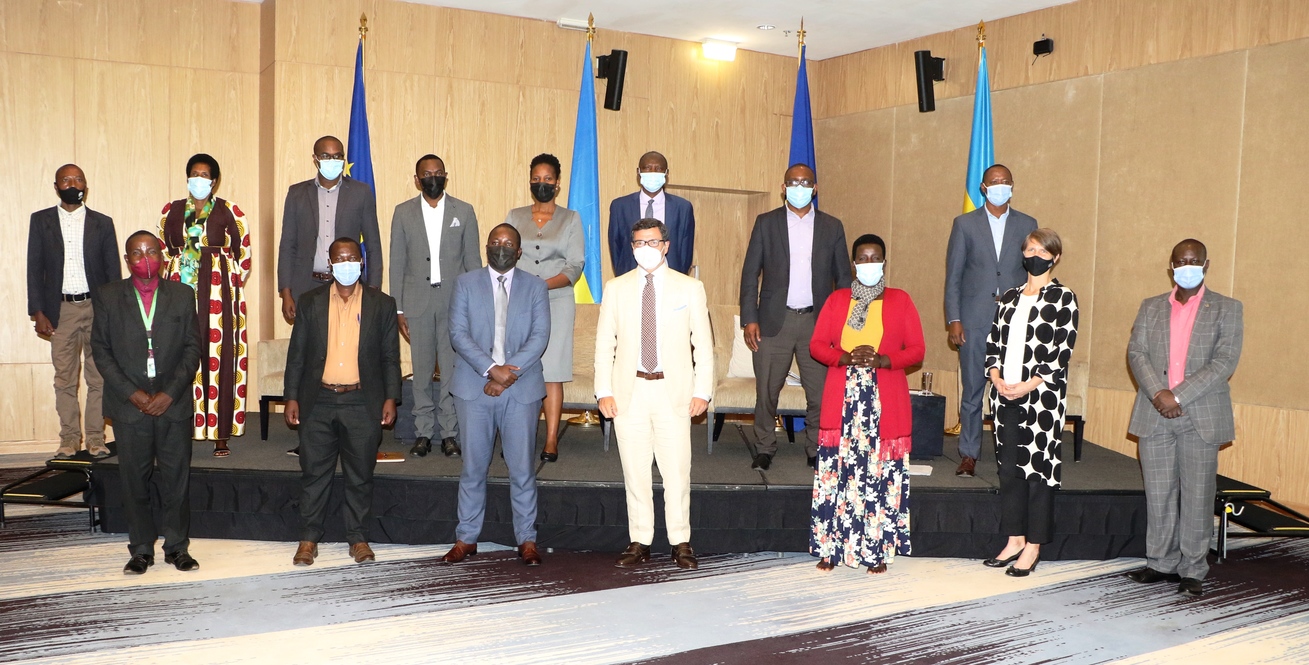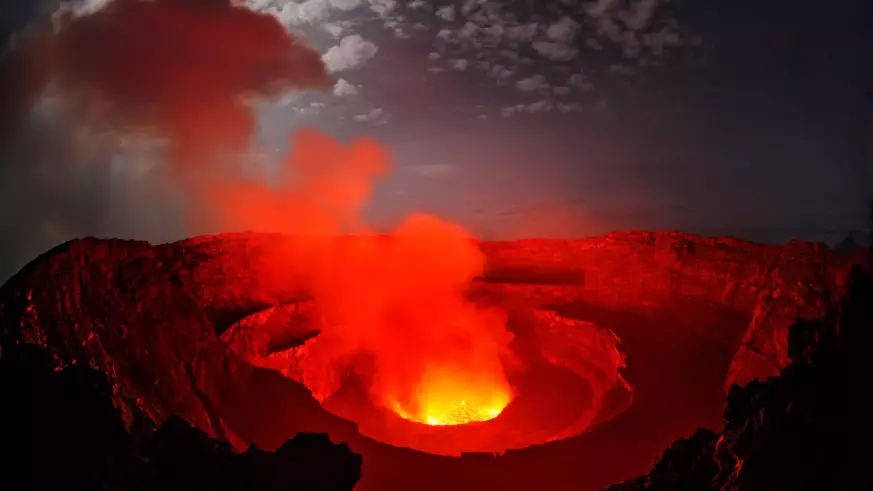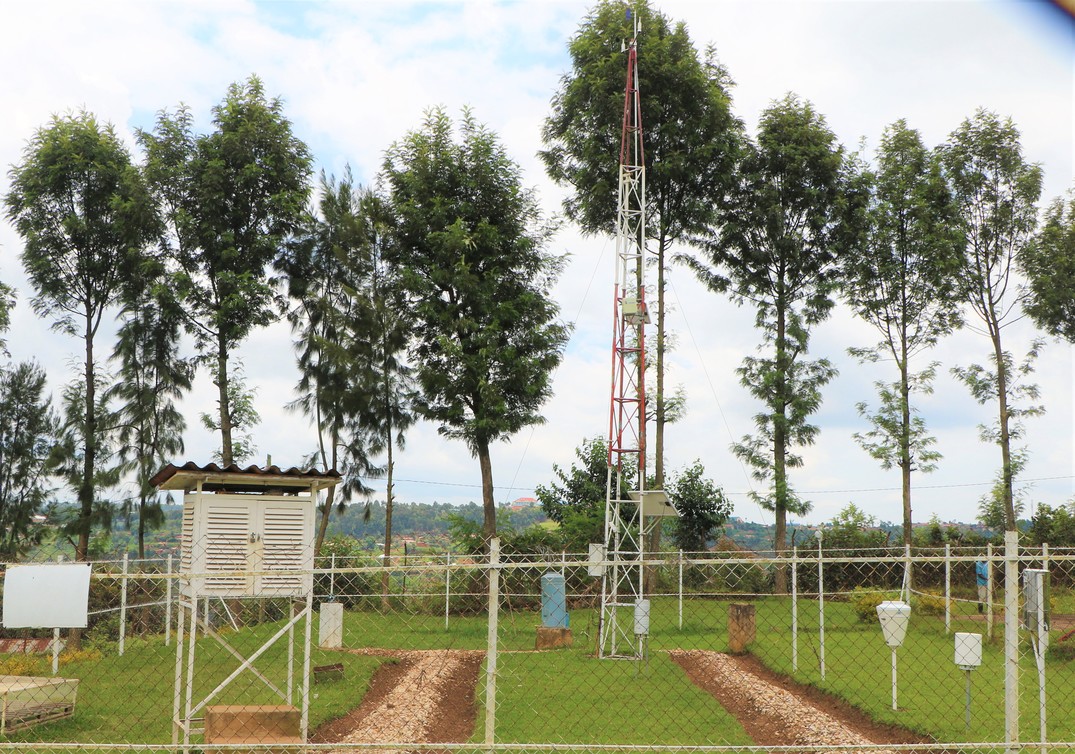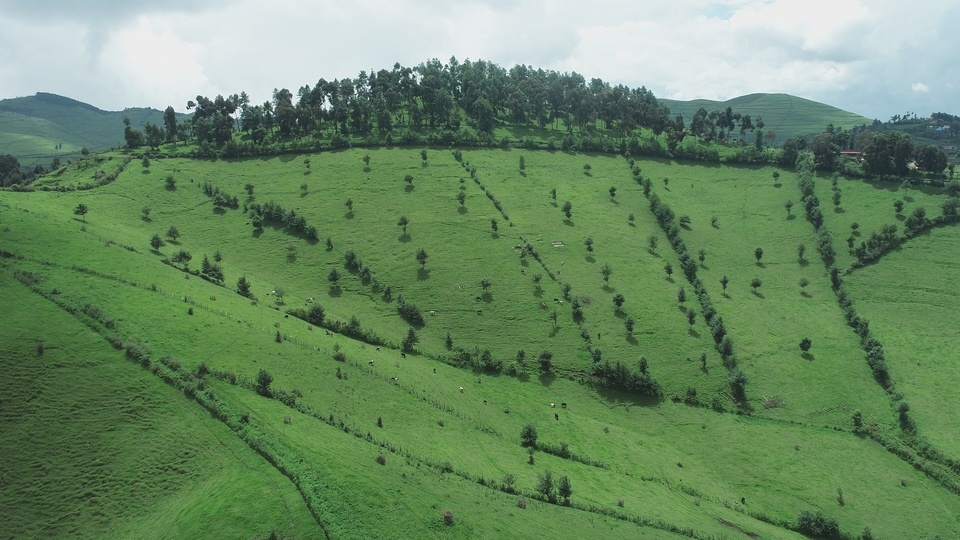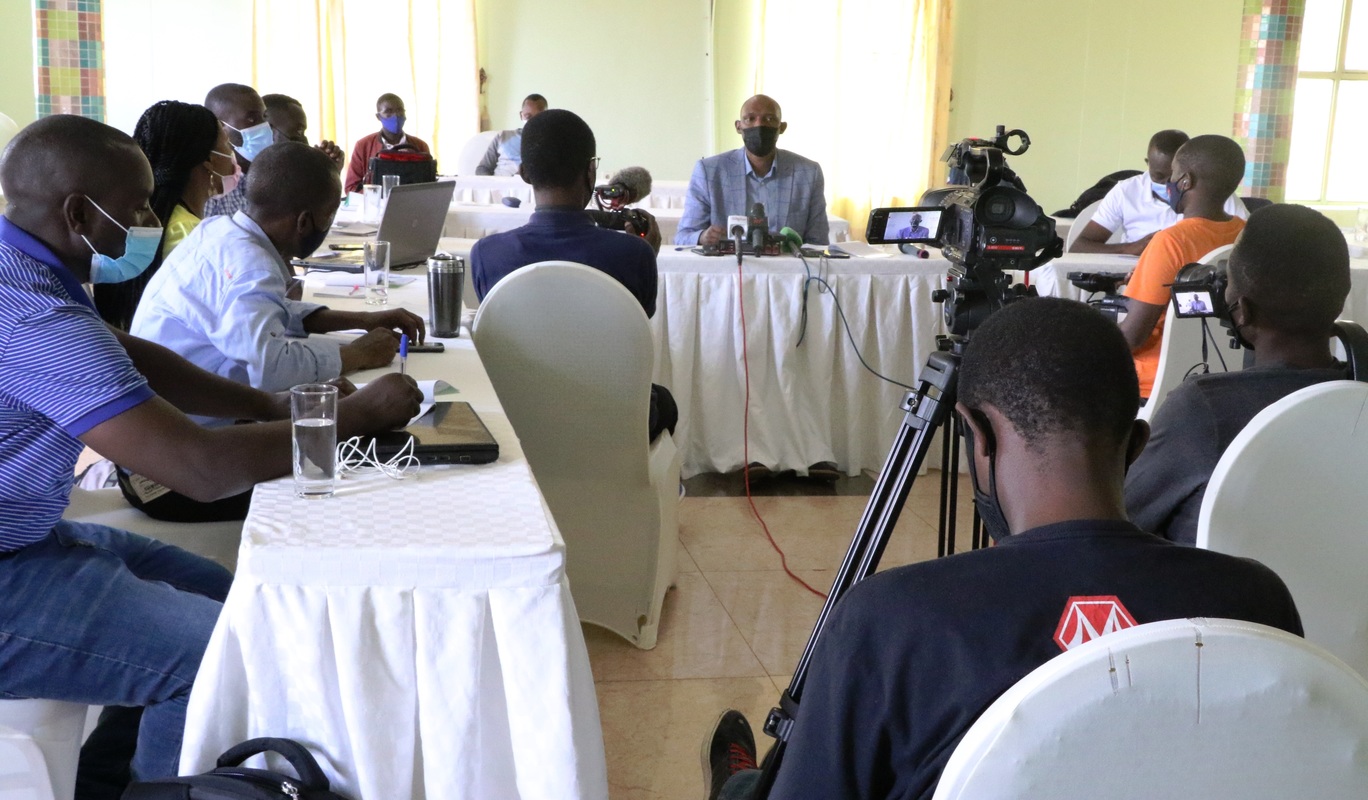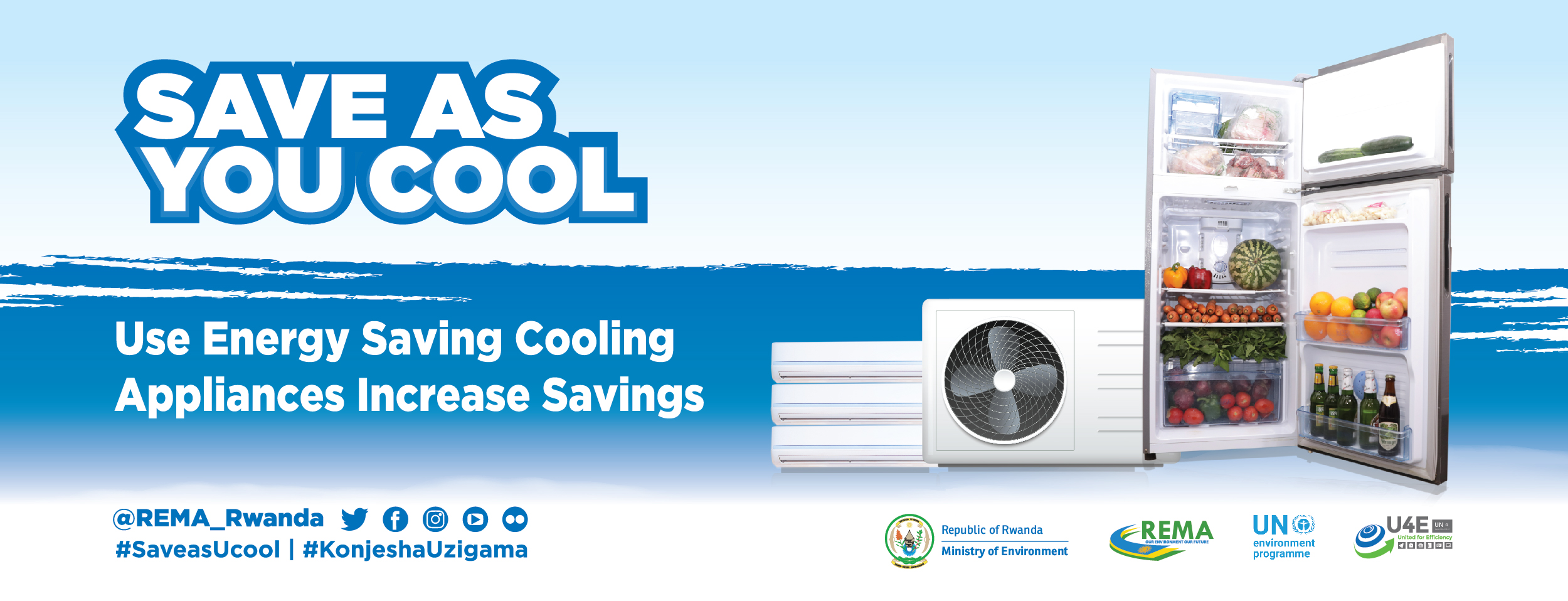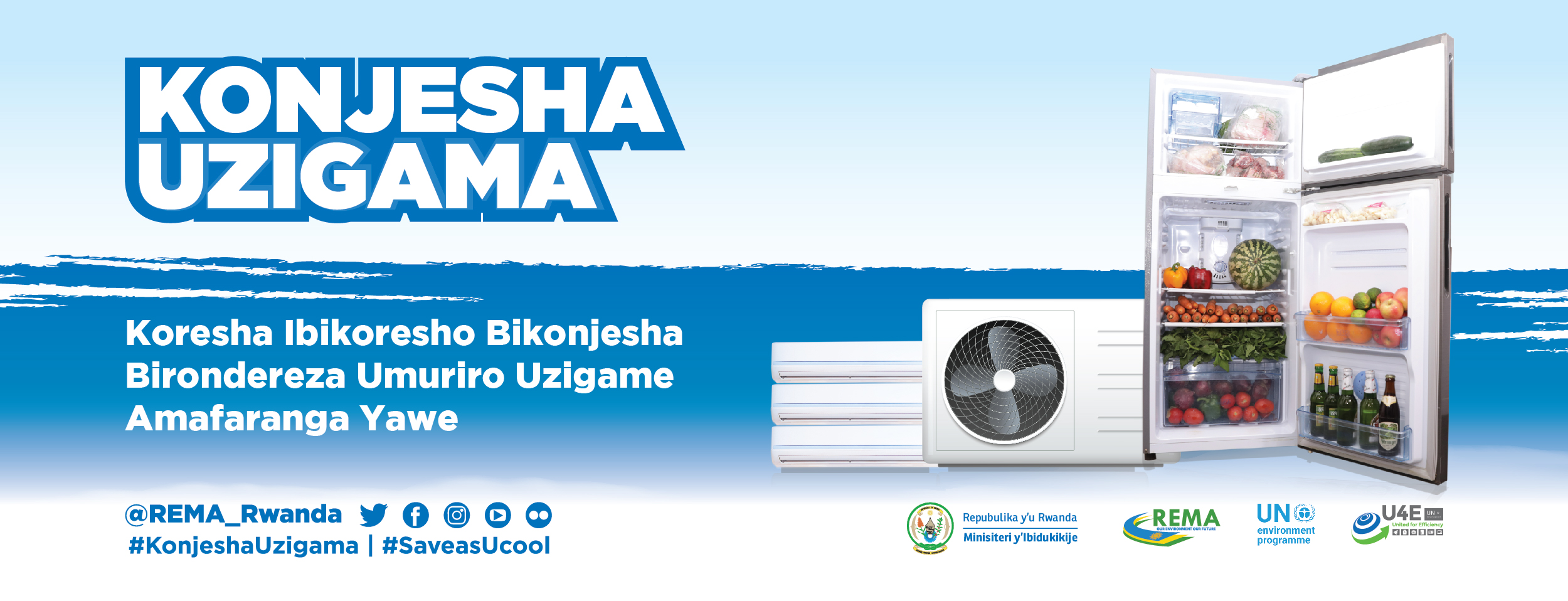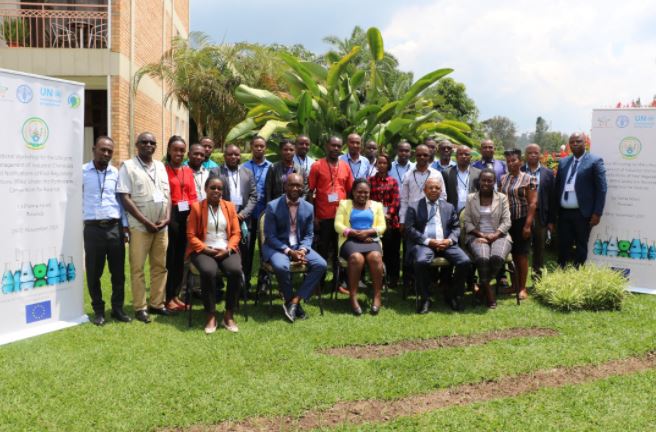
Stakeholders trained on Rotterdam Convention
Members of Chemical Based Conventions National Steering Committee from government institutions, private sector and non-governmental organizations, that have role in the implementation of Rotterdam Convention were trained in the national follow-up workshop for the life cycle management of chemicals and Notifications of Final Regulatory Actions (FRAs) under Rotterdam Convention. The workshop running from November 9 to November 12 was co-organized by REMA and Rotterdam convention secretariat in partnership with UN Environment Programme, UN Food and Agriculture Organization, and European Union.
This workshop which was financed by European Union is a follow-up to the “Sub-Regional workshop on the life cycle management of industrial chemicals under the Rotterdam Convention” that took place in Nairobi, Kenya 2019.
The key objectives of the follow-up workshop were to facilitate the strengthening of the capacity of Parties to assess and manage risks, prepare and communicate import responses and take decisions on final regulatory actions for chemicals that are listed under the Rotterdam Convention in accordance with the prior informed consent procedure.
It also aimed to raise awareness on hazardous chemicals through the use of GHS and also facilitate the development of frameworks and implementation plans for chemicals management, provide tools and approaches for Parties to apply precaution in industrial and pesticide chemicals management.
Opening the training on behalf of REMA Director General, Racheal TUSHABE, the Director of Advocacy and Multilateral Environmental Agreements Monitoring said:
“Environment has no borders, but, it also has no voice. We are the ones to advocate for the planet and enable nature to be heard and direct the conflict in particular ways. Hence, this is an assignment for all countries around the world. We can make it by joining hands as global community through the ratification, accession of Multilateral Environmental Agreements (MEAs) and putting emphasis on their implementation as it is the core solution to save our lives and biodiversity from diverse impacts resulting from the poor management of pesticide and industrial chemicals”.
Led by the trainers James Mulolo and Thabo Moroba from the Africa Institute for the Environmentally Sound Management of Hazardous, the training looked at the main provisions of Rotterdam convention, status regarding submissions, key obligations under the convention with focus on the role of National Coordination and Cooperation for sound chemicals management, hazard, risk assessment and management and framework development for sound management of chemicals. Trainees were also explained the distinction between Rotterdam Convention, Basel Convention and Stockholm Convention.
So far, Rwanda is party to 18 MEAs, notably the Rotterdam convention on prior informed consent. For the effective implementation of Rotterdam convention, Rwanda synergized it with the Strategic Approach to the International Chemicals Management, Basel, Stockholm and Minamata Conventions.
Since the date of its Ratification, Rwanda informed the secretariat the final decision taken against the transboundary movement of different pesticide and industrial chemical under annex III. In addition to the import responses submitted, during this year, Rwanda has adopted ministerial order banning eighty-seven (87) pesticide and industrial chemicals. Henceforth, 30 of them have been submitted to the Rotterdam Secretariat through import responses as provided for by article 10 of the convention.
About Basel, Rotterdam and Stockholm Conventions
The Rotterdam Convention which was adopted in 1998 and became effective in 2004 is a multilateral treaty to promote shared responsibilities in relation to importation of hazardous chemicals.
The convention promotes open exchange of information and calls on exporters of hazardous chemicals to use proper labeling, include directions on safe handling, and inform purchasers of any known restrictions or bans.
Signatory nations can decide whether to allow or ban the importation of chemicals listed in the treaty, and exporting countries are obliged to make sure that producers within their jurisdiction comply.
Basel Convention, adopted in 1989 and entered into force in 1992, is an international treaty that was designed to reduce the movements of hazardous waste between nations.
The Basel Convention regulates the transboundary movements of hazardous wastes and other wastes.
Stockholm Convention on Persistent Organic Pollutants is an international environmental treaty, signed on 22 May 2001 in Stockholm and effective from 17 May 2004.
Topics
More posts
Nta ngaruka iruka rya Nyiragongo ryagize ku kiyaga cya Kivu – Ubushakashatsi bwa REMA
Ishami rishinzwe kugenzura ikiyaga cya Kivu ryo mu kigo cy’Igihugu cyo Kubungabunga Ibidukikije (REMA) ryatangaje ko nta mpungenge zihari z’uko gaz yo…
“We Are Part of the Solution for Nature”_ Slogan of This Year International Day for Biological Diversity
On 31 May 2021, Rwanda marked the International Day for Biological Diversity. The celebration event was hosted by the Delegation of the European Union…
No imminent risk of Gas outburst is expected on Lake Kivu following Nyiragongo Eruption – REMA findings
The Lake Kivu monitoring team from Rwanda Environment Management Authority (REMA) based in Rubavu District, has come up with a conclusion that there…
Air Quality Monitoring: Rwanda On The Right Track
Since 2017, the Ministry of Education (MINEDUC) and Rwanda Environment Management Authority (REMA) have been implementing the Air Quality and Climate…
How Silvopastoralism approach is contributing to sustainable and efficient livestock production around Gishwati-Mukura National Park
A couple of decades ago, it was not that easy to find a single tree in the rangelands around Gishwati-Mukura National Park.
This was not only a…
Bakeries step to eliminate plastic bags and single-use plastics
In line with the awareness on the harmful effects of plastic bags and single-use plastics, Rwanda Environment Management Authority held a two-day…
REMA trains Media practitioners to increase their engagement in environment protection
Rwanda Environment Management Authority (REMA) has trained different Media practitioners on different laws and policy on environment and climate…
REMA and UNEP’s U4E Launch Efficient Cooling Awareness Campaign
The Rwanda Environment Management Authority (REMA) in partnership with the United Nations Environment Programme’s United for Efficiency launches today…
REMA yatangije ubukangurambaga bw'ibikoresho bikonjesha bitangiza ikirere
Ikigo cy’Igihugu cyo Kubungabunga Ibidukikije (REMA), ku bufatanye n’Ishami ry’Umuryango w’Abibumbye Rishinzwe Kurengera Ibidukikije (UNEP) binyuze…

